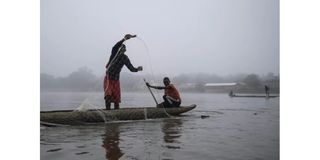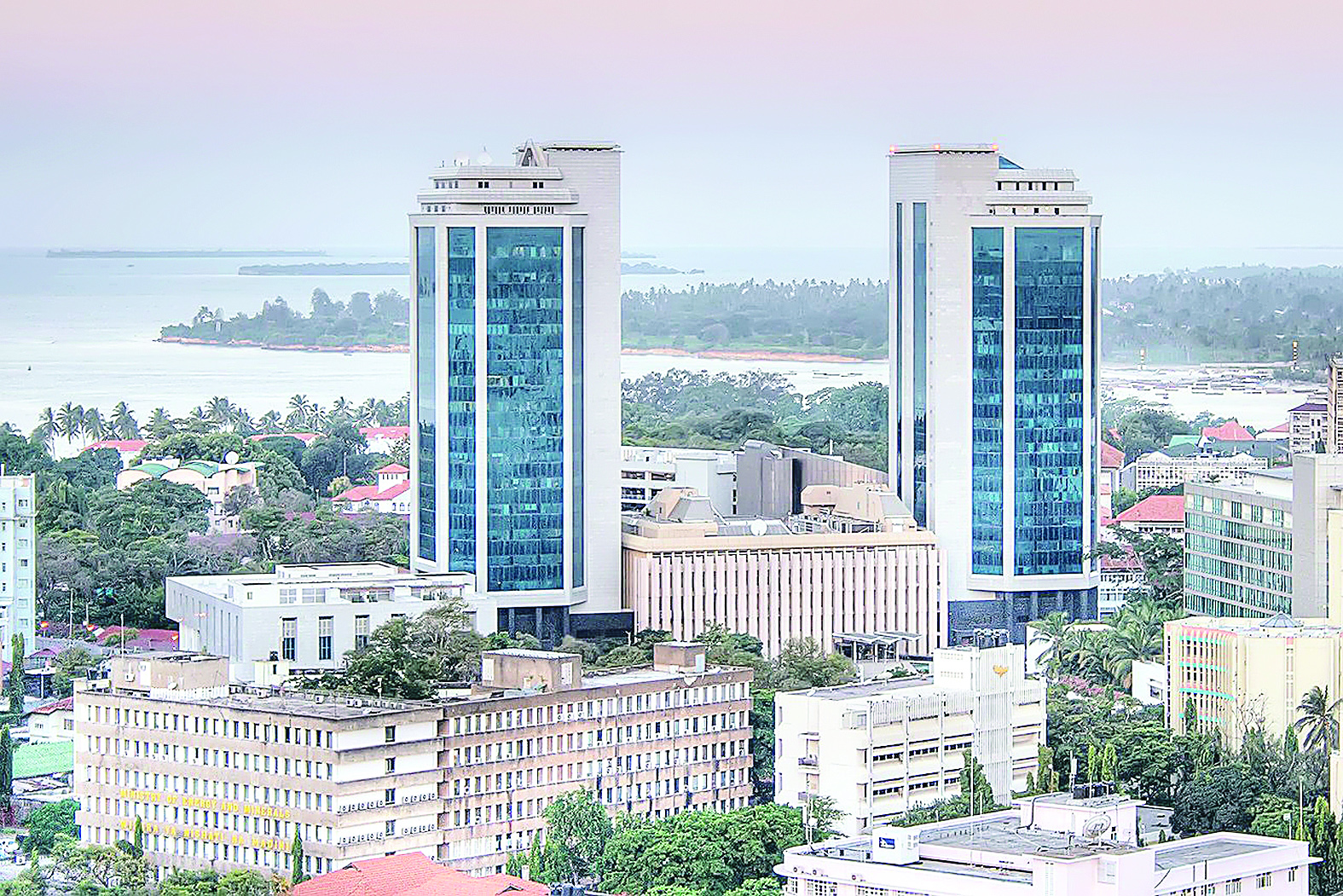Floods in Central Africa leave fishermen stranded

What you need to know:
- There is a shortage of fish and equipment to make the nets which usually come from Europe, Cameroon or Nigeria, but supplies have dried up.
Bangui. Dawn is just breaking over the Central African Republic's capital Bangui as Pacome Koyeke glides his dug-out canoe over the silent misty waters of the Ubangui river.
The tributary of the mighty Congo often floods during the rainy season, but this year the water levels have been catastrophic for the nation at the heart of the African continent.
And communities that eke a livelihood from fishing have been among the worst affected.
Seemingly endless civil wars have raged since 2013 and the United Nations lists Central Africa Republic (CAR) as the second least developed country in the world. Natural disasters only make things worse.
Koyeke, 29, has been casting his net and pulling it in since 3 am, hoping for a good catch.
But after several hours all he has to show for his efforts are two small red fish.
"At the moment all the fishermen are struggling", he says, his gaze fixed on the horizon.
With the flooding "the very high pressure of the water makes the fish flee their usual places," says the 29-year-old.
"They go and hide under the roots of trees, where the pressure is lower but we can't go there."
"Before, I could earn 180,000 CFA francs (275 euros) a day, now we are lucky to get even 10,000 francs," explains Koyeke, the head of Bangui's fishing development association One for All.
In the distance, a group of fishermen is caught silhouetted on the edge of the thick mist as they roll out a 300-metre long net before casting it into the river, in vain.
A lottery
There is a shortage of fish and equipment to make the nets which usually come from Europe, Cameroon or Nigeria, but supplies have dried up.
"Fishing's like a lottery today, you may win one day and the next day you lose," spits Edouard Franck, who guards canoes after having to give up fishing when he could not afford a new net.
"I no longer have the money. For a fishing net you need a minimum of 50,000 CFA francs (75 euros)," Franck explains.
The local catch includes eels, carp and captain fish, but fewer and fewer are on sale at the market at Ouango, a fishing community nearby the river.
For want of enough fish to sell, the women behind the stalls sing and dance to try to pull in passers-by and sell their meagre display.
"In normal times I could make 150,000 CFA francs (228 euros) a day, but now I can't get even 10,000," says Nina-Marie Zougouroupou, a 28-year-old fishmonger at a port in the capital.
"It's difficult for us at the moment," admits Eveline Binguimale.
Twice the price
According to the World Bank, CAR produced 29,000 tonnes of fish in 2020.
Much of the population has traditionally relied on the availability of large quantities of fish at cheap prices.
But those days appear to be passed.
"We can't eat fish the way we want to any more," says Sandra Liki wandering round the market looking to buy fish to feed her family.
"What we used to buy for 2,000 (CFA) francs costs 5,000 today."
The World Bank estimates 71 percent of the nation's six million people live below the international poverty line of $2.15 a day.
The floods have hit at a time when nearly half the population is suffering from food insecurity and relies on international aid, the UN says.
Since June, about 85,000 people have been affected by the floods across 12 of CAR's 17 prefectures, according to the UN.
Vakaga, in the north, has been hardest hit with 24,000 affected and more than 20,000 in the capital.
In 2019, the last time such severe floods struck, the United Nations said 100,000 people lost their homes.




